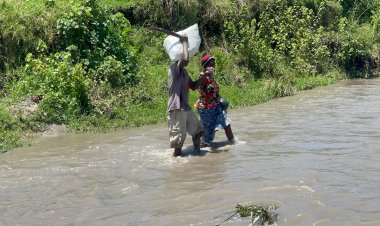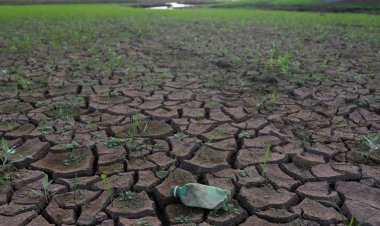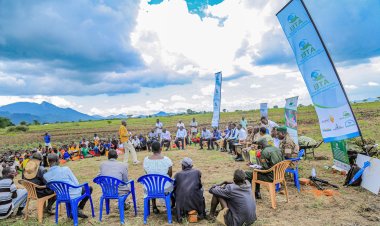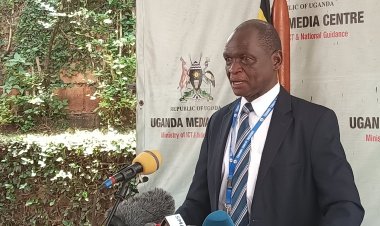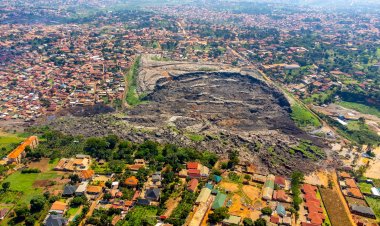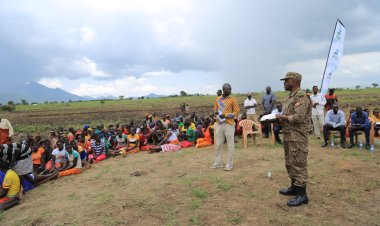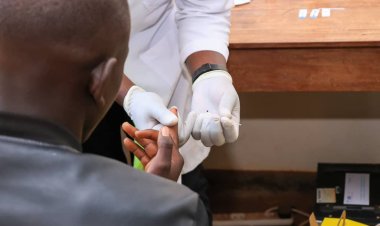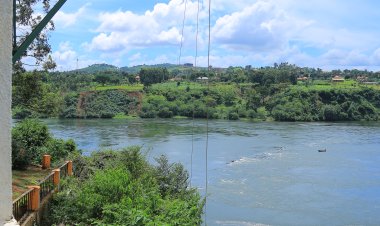Is Uganda’s oil a threat to climate; EACOP to generate 34 million tonnes of carbon emissions annually.
EACOP will be the longest heated crude oil pipeline in the world, producing an estimated 34 million tonnes of carbon emissions annually.
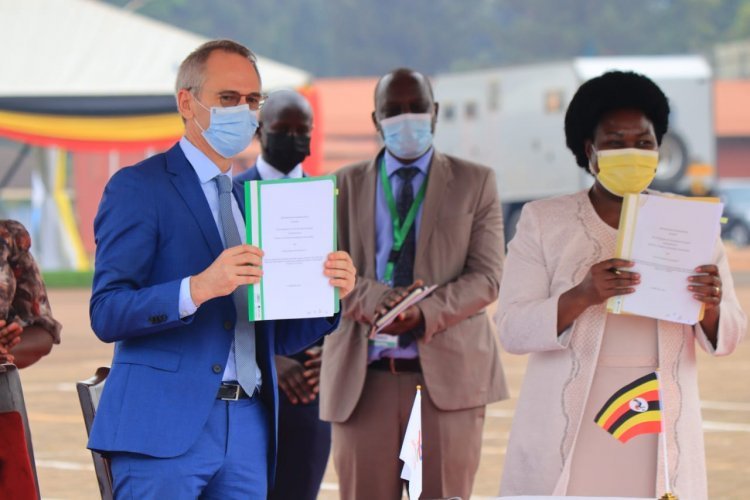
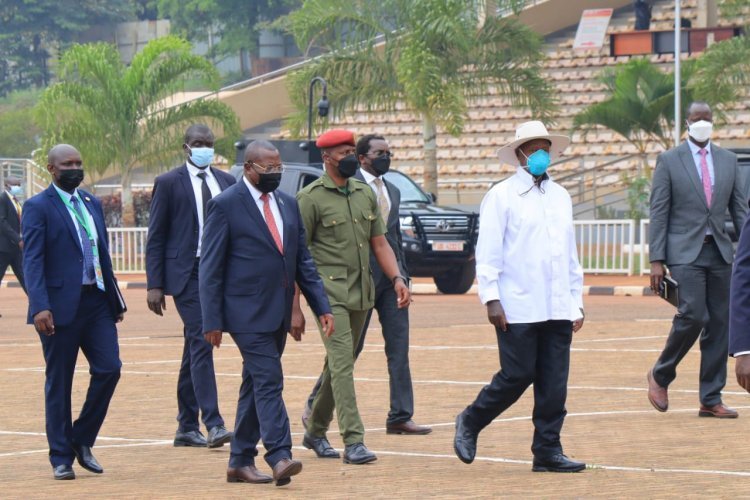
On 1st February 2022, Uganda’s President Museveni officiated the event for the signing of the EACOP Final investment decision .
This ceremony will see TotalEnergies and partners construct a 1443-km crude oil pipeline and infrastructure to transport Uganda’s crude oil from Hoima in Uganda to Tanga in Tanzania.
If constructed, this would be the longest heated crude oil pipeline in the world, producing an estimated 34 million tonnes of carbon emissions annually.
However billion dollar project is currently facing a lot of resistance from Climate change activities defining it as a Climate Disaster.
The activists say, the project has already displaced thousands of people in both countries and threatens the water resources, livelihoods of millions of people in the Lake Victoria basin, as well as wildlife.
They are however hopeful that through #StopEACOP project this decision can be reversed as long as the final investment decisions ( Financial close) are still pending.
The environment and Social Impact Assessment was undertaken to define and evaluate the potential social, health, human rights and environmental impacts of a the EACOP project; and subsequently avoid these impacts where possible or identify adequate measures to mitigate the potential negative impacts on the environment and society as well as maximize and enhance the projects benefits.
The ESIA studies for the EACOP were conducted between 2017 and 2018 and covered extensive physical, biological and social baselines as well as stakeholder engagements.
This kind of opposition has previously seen some projects FID but fall short of financial close. An example is the Lamu Coal Plant in Kenya. The proposed 1,050 MW plant reached FID in 2015, but is yet to reach financial close 7 years later, and increasingly seems unlikely to proceed, due to community opposition and legal battles.
To Climate change activists opposed to the pipelines say there is still a long way to go for the project to be realized, as partners are yet to reach financial close - which refers to execution and delivery of financing and other agreements related to the project.
Owing to the continuous opposition of the pipeline and associated projects by local communities in Uganda and Tanzania and pressure from climate and human rights activists and organizations in both countries, 11 banks have in the past confirmed that they would not finance EACOP, while three insurance companies, the African Development Bank and the UK’s Export Credit Agency have done the same. Whether or not the project goes ahead, will largely depend on the ability to reach financial close and raise the $3.5 - 5 billion for EACOP and an estimate of between $15 to 20 Billion that needs to be invested in Uganda before they can start oil production.
Nakabuye Hilda, Fridays For Future Uganda stated, “The EACOP project poses grave risks to the world’s climate. In my home village, people are already displaced, their incomes and livelihoods affected, unacceptable risks to water resources, biodiversity and natural habitats. At a time where climate catastrophes are worsening, unlocking a new source of carbon emissions that will either prove financially unviable or produce unacceptable climate harm puts millions of lives at stake and is a mockery for the existence of generations to come.”
Landry Ninteretse, 350Africa.org Regional Director, said, “Signing the FID is far to be a definitive step toward the operationalisation of the controversial project. So far, people's power and increased pressure exerted on banks behind the EACOP have resulted in a good number of financial institutions distancing themselves from it. Together, we can further pressure the reluctant ones, stop this fossil finance flowing into the region and expose TotalEnergies, a company which has been previously associated with opaque contracts, lack of accountability and violation of basic rights of grassroots communities across Africa and beyond.”
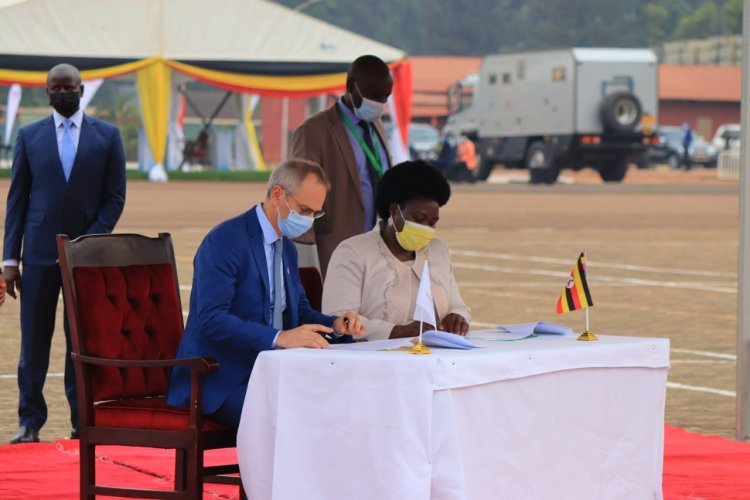
Omar Elmawi, the Coordinator of #StopEACOP, said, “There is still hope to avert this pipeline that threatens the social, environmental, cultural, health, livelihood, climate and economic impacts to both Tanzania and Uganda and its citizens while most, if not all, the economic benefits find their way to Total Energies and CNOOC.”
Ryan Brightwell, BankTrack stated, “Despite the show of progress with today’s Final Investment Decision, Total and CNOOC are staying quiet on the crucial question of where the money will come from for their incredibly risky pipeline plans. Eight of Total’s biggest 15 bankers have already said “no” to the EACOP pipeline. With the Ugandan government cracking down on dissent, arresting critics and attempting to shut down groups working peacefully to support oil-affected communities, not to mention huge risks to communities, nature, water and the climate, no wonder the project is struggling to find financiers unscrupulous and reckless enough to back it.”
Juliette Renaud, senior campaigner at Friends of the Earth France, said “Total and its partners continue their greenwashing, proudly announcing the final investment decision for Tilenga and EACOP as if everything was fine with these projects. But ignoring the increasing human rights violations and huge environmental and climate risks won’t make them disappear. While the civil society mobilization denouncing these devastating impacts is growing every day in East Africa and in France, Total will be compelled to be accountable for its actions and to give answers in a court hearing in France in the coming months.”
The #StopEACOP coalition and partners have continuously written and invited the public to write to potential banks and insurance companies to stay clear of the EACOP. The coalition calls on financiers, insurers, communities and others to keep rejecting the risky and exploitative project.
The EACOP is a 1,443km crude oil export infrastructure that will transport Uganda’s crude oil from Kabaale - Hoima in Uganda to the Chongoleani peninsula near Tanga in Tanzania.
This major export system, (296km in Uganda and 1,147km in Tanzania), comprises a 24-inch insulated buried pipeline, 6 Pumping stations (2 in Uganda and 4 in Tanzania) and a marine export terminal.








